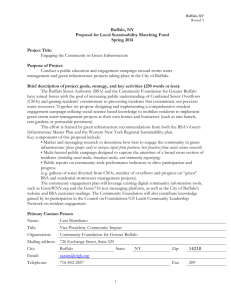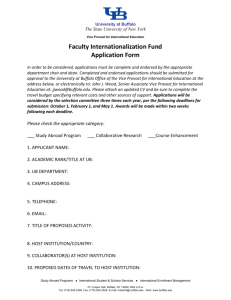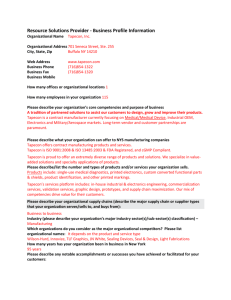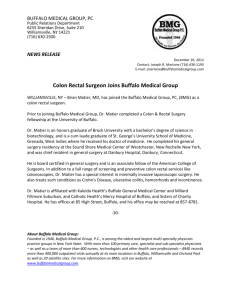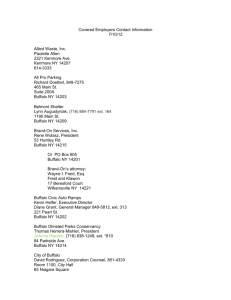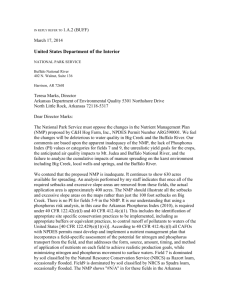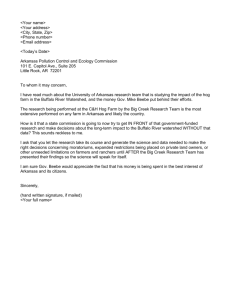Buffalo River Coalition Letter to Gov. Hutchinson
advertisement
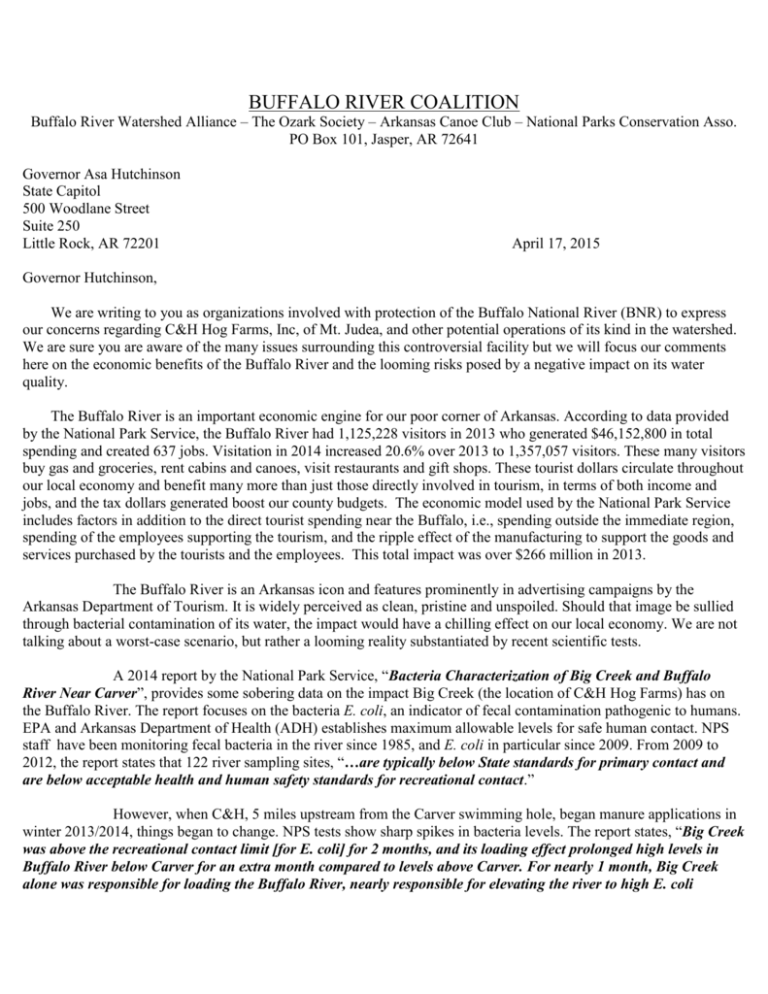
BUFFALO RIVER COALITION Buffalo River Watershed Alliance – The Ozark Society – Arkansas Canoe Club – National Parks Conservation Asso. PO Box 101, Jasper, AR 72641 Governor Asa Hutchinson State Capitol 500 Woodlane Street Suite 250 Little Rock, AR 72201 April 17, 2015 Governor Hutchinson, We are writing to you as organizations involved with protection of the Buffalo National River (BNR) to express our concerns regarding C&H Hog Farms, Inc, of Mt. Judea, and other potential operations of its kind in the watershed. We are sure you are aware of the many issues surrounding this controversial facility but we will focus our comments here on the economic benefits of the Buffalo River and the looming risks posed by a negative impact on its water quality. The Buffalo River is an important economic engine for our poor corner of Arkansas. According to data provided by the National Park Service, the Buffalo River had 1,125,228 visitors in 2013 who generated $46,152,800 in total spending and created 637 jobs. Visitation in 2014 increased 20.6% over 2013 to 1,357,057 visitors. These many visitors buy gas and groceries, rent cabins and canoes, visit restaurants and gift shops. These tourist dollars circulate throughout our local economy and benefit many more than just those directly involved in tourism, in terms of both income and jobs, and the tax dollars generated boost our county budgets. The economic model used by the National Park Service includes factors in addition to the direct tourist spending near the Buffalo, i.e., spending outside the immediate region, spending of the employees supporting the tourism, and the ripple effect of the manufacturing to support the goods and services purchased by the tourists and the employees. This total impact was over $266 million in 2013. The Buffalo River is an Arkansas icon and features prominently in advertising campaigns by the Arkansas Department of Tourism. It is widely perceived as clean, pristine and unspoiled. Should that image be sullied through bacterial contamination of its water, the impact would have a chilling effect on our local economy. We are not talking about a worst-case scenario, but rather a looming reality substantiated by recent scientific tests. A 2014 report by the National Park Service, “Bacteria Characterization of Big Creek and Buffalo River Near Carver”, provides some sobering data on the impact Big Creek (the location of C&H Hog Farms) has on the Buffalo River. The report focuses on the bacteria E. coli, an indicator of fecal contamination pathogenic to humans. EPA and Arkansas Department of Health (ADH) establishes maximum allowable levels for safe human contact. NPS staff have been monitoring fecal bacteria in the river since 1985, and E. coli in particular since 2009. From 2009 to 2012, the report states that 122 river sampling sites, “…are typically below State standards for primary contact and are below acceptable health and human safety standards for recreational contact.” However, when C&H, 5 miles upstream from the Carver swimming hole, began manure applications in winter 2013/2014, things began to change. NPS tests show sharp spikes in bacteria levels. The report states, “Big Creek was above the recreational contact limit [for E. coli] for 2 months, and its loading effect prolonged high levels in Buffalo River below Carver for an extra month compared to levels above Carver. For nearly 1 month, Big Creek alone was responsible for loading the Buffalo River, nearly responsible for elevating the river to high E. coli concentrations”. The report concludes “BNR will begin contingency planning (ADEQ and ADH) to respond to potential high E. coli concentrations and a public warning system for water-based recreation is being planned in FY2015.” As stated previously, if the Carver swimming hole and river sections downstream from Big Creek are subject to public warnings, the image of the Buffalo, and consequently the economy of our region, will be needlessly and deeply damaged. This would garner major media attention and what tourist or Arkansas native would want to swim, fish, or canoe a river that has been posted with signs warning of contamination? We contend that protecting the Buffalo from such certain and avoidable harm should be a high priority for your office as Governor. Lesser measures will only further endanger this National treasure. As such, we ask that you do all in your power to prevent such harm, including, most immediately, asking the Arkansas Pollution and Ecology Commission to extend the temporary moratorium on future swine permits, set to expire on April 20, 2015, until such time as permanent protection of the Buffalo National River from swine operations within the watershed can be secured. Respectfully, Jack Stewart Buffalo River Watershed Alliance Emily Jones National Parks Conservation Association Bob Allen Arkansas Canoe Club Robert Cross The Ozark Society

